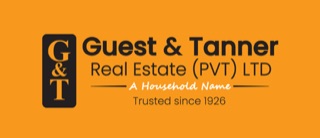Unlocking the secrets of real estate mandates: Sole vs. Open – A comprehensive guide
In the realm of real estate, navigating through terminology can be like finding your way through a maze, especially for property sellers. One critical decision property owners often grapple with is choosing between a Sole and Open Mandate. This guide aims to unravel the mysteries surrounding these terms, empowering you to make an educated decision.
Understanding Real Estate Mandates
In real estate parlance, a mandate is essentially a pact between a property owner and a real estate agent or agency. This agreement grants the agent the authority to sell the property on behalf of the owner. Two primary types of mandates prevail: Sole and Open.
Deciphering Sole Mandate
A Sole Mandate entails an exclusive agreement between the property owner and a single real estate agent or agency. In this scenario, only the designated agent possesses the rights to market and sell the property. This mandate guarantees the agent's commission, regardless of who ultimately seals the deal.
Exploring Open Mandate
Conversely, an Open Mandate permits multiple agents to market the property. The agent who successfully secures the sale earns the commission. Under this arrangement, the property owner retains the liberty to sell the property independently without any obligation to pay a commission.
Sole Mandate vs. Open Mandate: The Ultimate Showdown
Determining the superior mandate hinges on several factors, including prevailing market conditions, property type, and the owner's personal inclinations.
The Benefits of a Sole Mandate
1. Targeted Marketing: With exclusive rights, the agent can channel more time, resources, and personalized attention towards marketing the property.
2. Uniform Representation: Ensures consistency in the information provided to potential buyers, mitigating the risk of misrepresentation.
3. Controlled Viewings: Enables the agent to efficiently manage property viewings, minimizing disruptions to the homeowner.
The Advantages of an Open Mandate
1. Expanded Reach: Multiple agents have the potential to attract a broader pool of prospective buyers.
2. Expedited Sales: The involvement of numerous agents may expedite the selling process.
3. Competitive Environment: Fosters a competitive milieu among agents, potentially enhancing efforts to sell the property.
Making the Final Call
While both mandate types possess their merits and demerits, the optimal choice should align with the property owner's specific requirements and circumstances. If a methodical, focused approach is preferred, and time is not of the essence, a Sole Mandate may be the preferred option. Conversely, for those seeking a swift sale and open to simultaneous agent involvement, an Open Mandate might be the preferred route.
In conclusion, selecting between a Sole Mandate and an Open Mandate hinges on the individual needs of the property owner. A thorough understanding of both options and their implications is imperative before reaching a decision. Remember, an informed decision sets the stage for a successful property transaction.

 Continue with Facebook
Continue with Facebook
 Continue with Email
Continue with Email














